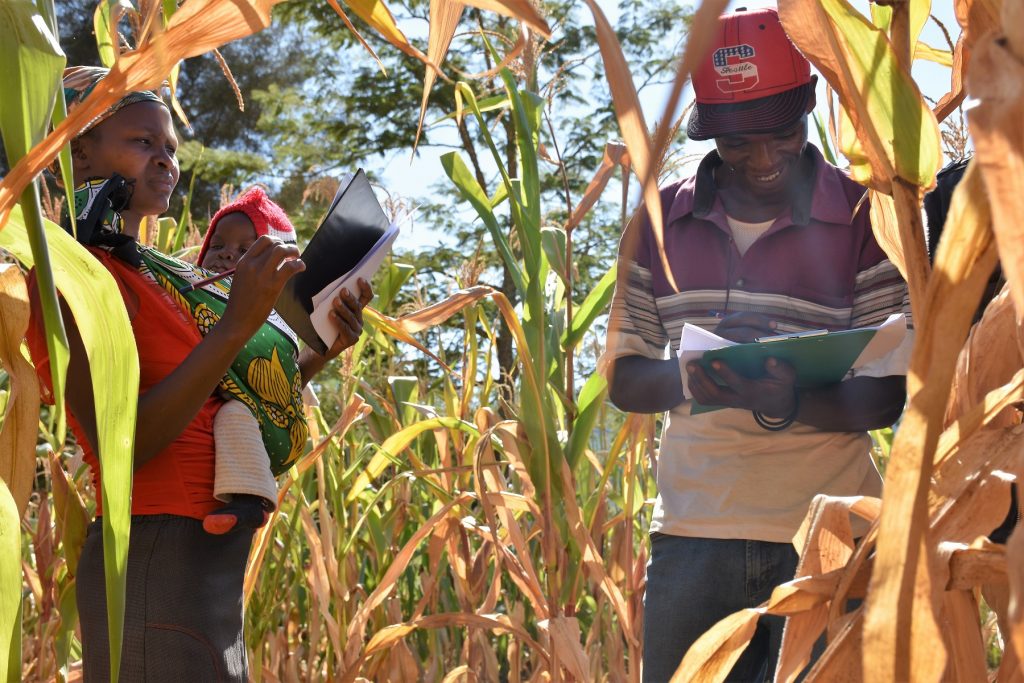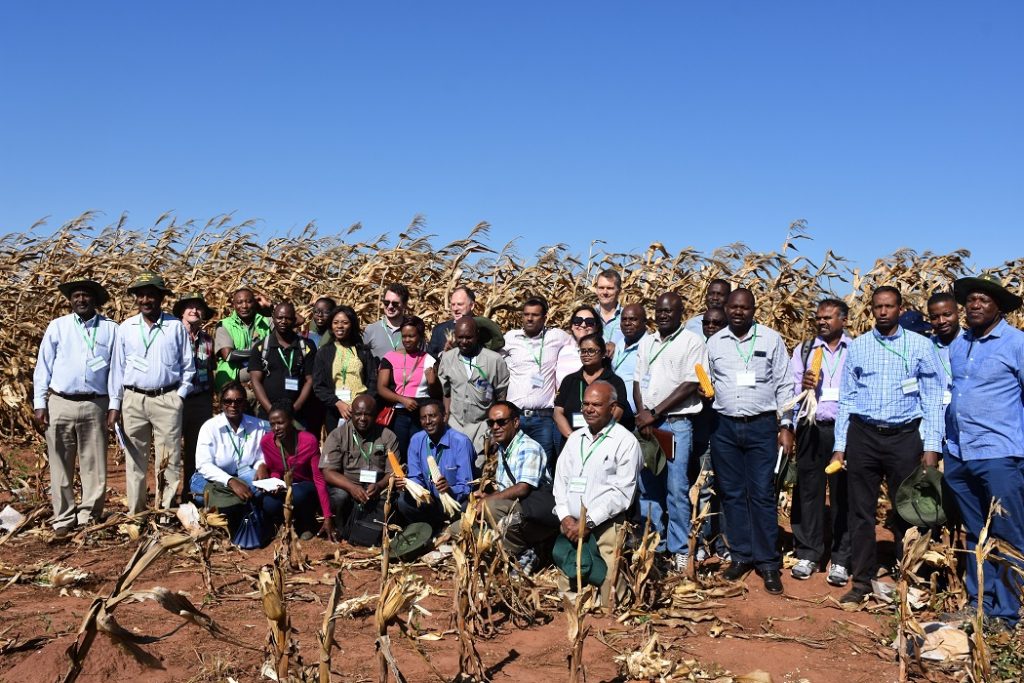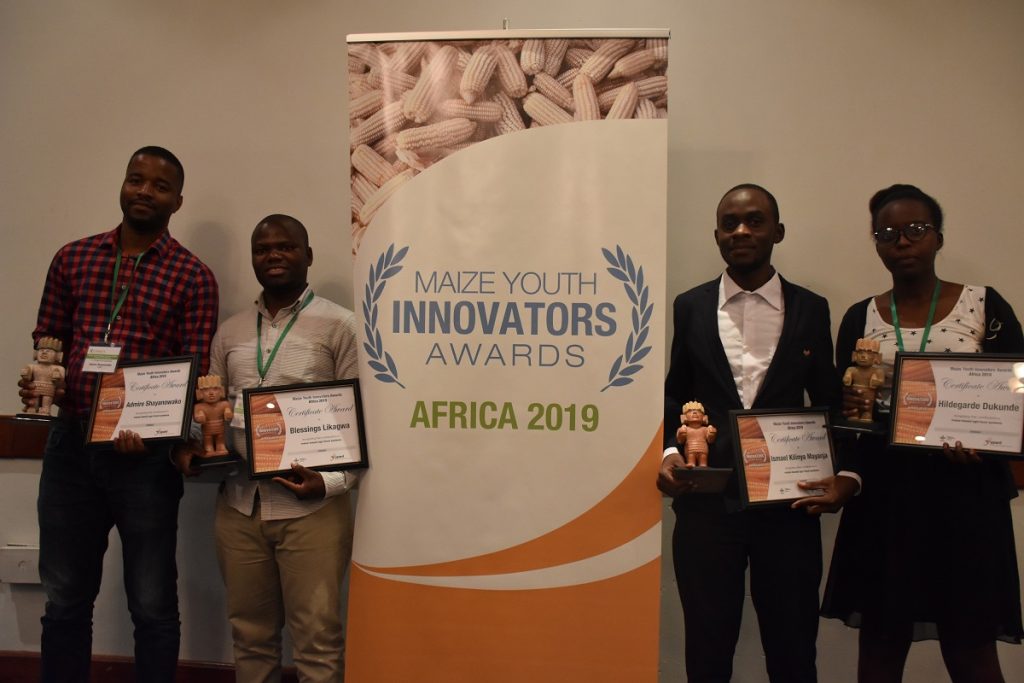Resilience and livelihoods improved for 3.5 million African farmers now planting stress tolerant maize varieties
The Stress Tolerant Maize for Africa (STMA) project held its annual meeting May 7-9, 2019 in Lusaka, Zambia to discuss the achievements of the past year and priorities going forward.

STMA Project Leader Cosmos Magoroksho recalled what STMA project launched in 2016 is aiming at “Maize is grown on 30 million hectares in SSA, and more than 208 million farmers depend on it as a staple crop. However, average maize yields in SSA are among the lowest in the world. STMA is a multi-stakeholder project designed to develop, test and deliver improved maize varieties that can mitigate the combined effects of multiple stresses in farmer fields and provide reliable decent yields even in challenging conditions like drought or low soil fertility.”
“STMA proved it is possible to combine multiple stress tolerance and still get good yields. One of the greatest aspects of STMA are great partnerships which have only grown stronger through the years. We are now the proud partners of over 100 seed companies,” said B.M. Prasanna, director of the CIMMYT Global Maize Program and the CGIAR Research Program on Maize (MAIZE), in his keynote address.
CIMMYT and partners across SSA are working together in the fight against challenges such as drought, maize lethal necrosis (MLN) and fall armyworm (FAW) using innovative technologies such as doubled haploids, marker assisted back crossing, and germplasm screening to develop improved stress tolerant maize for farmers. The efforts are paying off—in 2018, 3.5 million smallholder farmers planted stress tolerant maize varieties in 10 African countries, Prasanna said.

On May 8, participants visited local seed company partners, namely Afriseed, Zamseed and QualiBasic Seed to learn more about the opportunities and challenges of producing stress tolerant maize seed for smallholder farmers. Afriseed CEO Stephanie Angomwile discussed her business strategy and passion for agriculture with participants. She expressed her gratitude for the support CIMMYT has provided the company, including access to drought tolerant maize varieties as well as capacity development opportunities for her staff.
At QualiBasic Seeds (QBS), CIMMYT staff and partners were given the opportunity to learn and ask questions about the seed multiplication process in Zambia and the importance of high quality, genetically pure foundation seeds for seed companies.
Bhola Nath Verma, principal crop breeder at ZAMSEED explained climate change has visible impact on Zambian maize sector as the main maize growing basket moved 500 km North due to increased drought. Verma values the partnership with STMA as he can source very drought-tolerant breeding material from CIMMYT and IITA allowing him to develop very early varieties that escape drought and bring much needed yield stability to farmers in Zambia, Angola, DRC, Botswana and Tanzania.

The meeting concluded with an awards ceremony for the winners of the 2019 MAIZE Youth Innovators Awards – Africa, established by MAIZE in collaboration with the Young Professionals for Agricultural Development (YPARD). These awards recognize the contributions of young women and men below 35 years of age who are implementing innovations in African maize-based agri-food systems, including research-for-development, seed systems, agribusiness, and sustainable intensification. This is the second year of the award, and the first time it has been held in Africa. Winners include Hildegarde Dukunde of Rwanda and Mila Lokwa Giresse of the Democratic Republic of the Congo in the change agent category, Admire Shayanowako of the Republic of South Africa and Ismael Mayanja of Uganda in the research category, and Blessings Likagwa of Malawi in the farmer category.
Tags: Afriseed, annual meeting, award, impact, Qualibasic, seed company, zambia, Zamseed
Trackback from your site.
